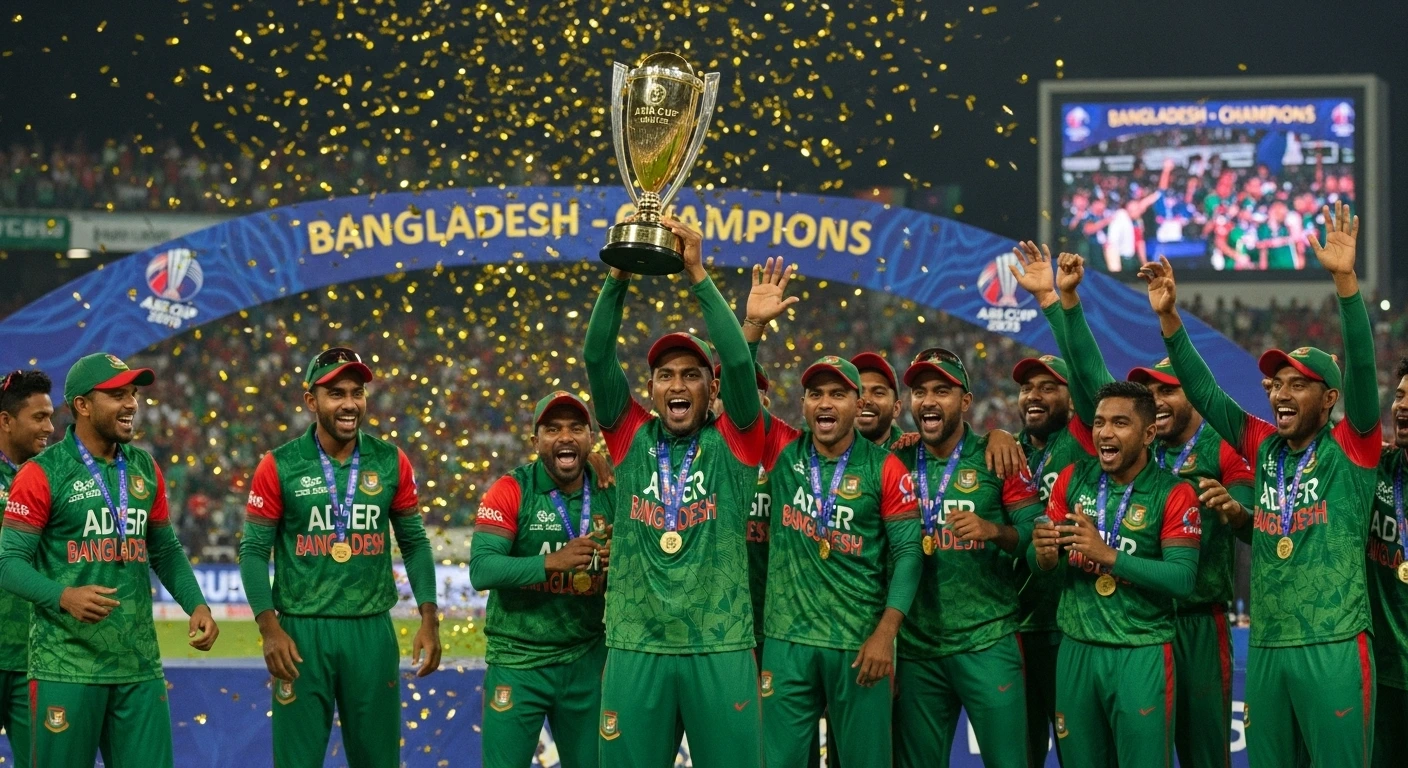The landscape of Asian cricket faces a significant upheaval. Recent reports indicate that India is likely to withdraw from the Asia Cup 2025. This potential pullout stems from the Board of Control for Cricket in India’s (BCCI) firm stance on isolating Pakistan cricket on the global stage. This development has sent ripples across the cricketing world. It raises serious questions about the future of multilateral cricket tournaments involving the two arch-rivals.
Table of Contents
BCCI’s Unwavering Position: Isolating Pakistan Cricket
The BCCI has consistently maintained a strong position regarding cricketing ties with Pakistan. This stance is largely influenced by the prevailing geopolitical tensions between the two nations. Consequently, bilateral cricket series between India and Pakistan have remained suspended for a considerable period. Furthermore, the BCCI has seemingly extended this policy to multilateral events. They appear unwilling to share cricketing platforms with Pakistan unless under specific, controlled circumstances.
Moreover, the BCCI’s stance appears to be aimed at isolating Pakistan cricket within the international arena. This hardline approach has reportedly been conveyed to the Asian Cricket Council (ACC). Consequently, it has created a deadlock regarding the hosting and participation in the upcoming Asia Cup. The BCCI’s firm resolve suggests a significant shift in the dynamics of Asian cricket administration.
Asia Cup 2025 Hostage to Geopolitics: Pakistan’s Hosting Rights in Jeopardy
Pakistan holds the hosting rights for the Asia Cup 2025. However, the BCCI’s reluctance to send the Indian team to Pakistan poses a major hurdle. India’s participation is crucial for the tournament’s financial viability and overall prestige. Historically, matches between India and Pakistan generate immense viewership and revenue. Therefore, India’s absence would significantly diminish the tournament’s appeal.
Furthermore, the BCCI has consistently refused to tour Pakistan for security reasons. This stance has been a long-standing point of contention between the two cricket boards. Consequently, a compromise solution, such as hosting India’s matches at a neutral venue, has often been explored for multilateral tournaments. However, the current situation suggests that even this option might be facing resistance from the BCCI.
ACC Under Pressure: Navigating a Diplomatic Minefield
The Asian Cricket Council (ACC) finds itself in a precarious position. As the governing body for cricket in Asia, it is responsible for ensuring the smooth conduct of tournaments like the Asia Cup. However, the BCCI’s firm stance has placed immense pressure on the ACC to find a resolution that accommodates all stakeholders.
Moreover, the ACC faces the challenge of balancing the interests of its member nations. While India’s participation is vital for the tournament’s success, Pakistan’s hosting rights also need to be respected. Consequently, the ACC is likely exploring various options, including potential neutral venues for the entire tournament or a hybrid model where India’s matches are held elsewhere. However, reaching a consensus that satisfies both India and Pakistan appears to be a significant diplomatic challenge.
Pakistan’s Perspective: Maintaining Hosting Rights and Seeking Resolution
The Pakistan Cricket Board (PCB) is understandably keen on hosting the Asia Cup 2025 in Pakistan, as per the hosting rights allocated to them. Hosting a major international tournament like the Asia Cup would be a significant boost for Pakistan cricket. It would also send a positive message about the country’s ability to host international sporting events.
Furthermore, the PCB has likely been engaging in discussions with the ACC and the BCCI to find a mutually agreeable solution. They might be open to considering hybrid models or offering assurances regarding the security of the Indian team. However, they would also want to ensure that Pakistan’s hosting rights are duly acknowledged and respected. The situation presents a delicate balancing act for the PCB.
Financial Implications: A Blow to Asian Cricket’s Revenue Streams
India’s potential withdrawal from the Asia Cup 2025 carries significant financial implications for the tournament and Asian cricket as a whole. Matches featuring India are the biggest revenue generators in the sport, especially those against Pakistan. Their absence would lead to a substantial drop in broadcasting rights, sponsorships, and overall viewership.
Moreover, the financial viability of the Asia Cup heavily relies on India’s participation. A weakened tournament, devoid of India-Pakistan clashes, would likely deter major broadcasters and sponsors. Consequently, this could have a cascading effect on the revenue distribution among the participating member nations. The ACC will need to carefully consider these financial ramifications while seeking a resolution.
Impact on India-Pakistan Cricket Relations: Further Deepening the Divide?
The current standoff regarding the Asia Cup 2025 could further strain the already tense cricketing relations between India and Pakistan. While the two teams do compete in ICC events, bilateral series remain elusive. A withdrawal from a major multilateral tournament like the Asia Cup would be another setback for fans who eagerly await clashes between the two giants of cricket.
Furthermore, this situation could potentially impact future engagements in other ACC tournaments as well. A prolonged period of non-participation in each other’s hosted events could create a deeper divide and make any future resumption of normal cricketing ties even more challenging. The broader implications for the spirit of sportsmanship in the region are also a matter of concern.
Exploring Potential Solutions: Neutral Venues and Hybrid Models
To break the deadlock, the ACC might explore alternative solutions. One possibility is to host the entire Asia Cup 2025 at a neutral venue. Countries like the UAE or Sri Lanka have previously hosted Asia Cup tournaments. This option would allow India to participate without touring Pakistan.
Another potential solution is a hybrid model. In this scenario, Pakistan could remain the official host, but India’s matches, and potentially matches involving Pakistan, could be held at a neutral venue. This approach would attempt to respect Pakistan’s hosting rights while addressing India’s security concerns. However, the feasibility and acceptance of such models by both boards remain uncertain.
The Road Ahead: Uncertainty Looms Over Asia Cup 2025
The future of the Asia Cup 2025 hangs in the balance. The BCCI’s firm stance and India’s potential withdrawal have created a complex situation that requires careful diplomatic maneuvering. The ACC faces a significant challenge in finding a solution that satisfies both India and Pakistan while ensuring the tournament’s success.
Furthermore, the outcome of these discussions will have far-reaching implications for the future of India-Pakistan cricket relations and the overall landscape of Asian cricket. Fans and stakeholders will be keenly watching the developments as the ACC attempts to navigate this delicate situation and determine the fate of the Asia Cup 2025. The spirit of the game in the region depends on finding a way forward that respects all parties involved.
Conclusion: A Test of Cricket Diplomacy
The potential withdrawal of India from the Asia Cup 2025 underscores the intricate interplay between sports and geopolitics. The BCCI’s unwavering stance on isolating Pakistan cricket has created a significant hurdle for the ACC and threatens the very fabric of multilateral cricket tournaments in Asia. Finding a resolution that respects hosting rights, addresses security concerns, and safeguards the financial viability of the tournament will be a true test of cricket diplomacy. The cricketing world awaits the outcome, hoping for a solution that allows the fierce rivalry between India and Pakistan to continue on the field, uniting fans rather than dividing them.



